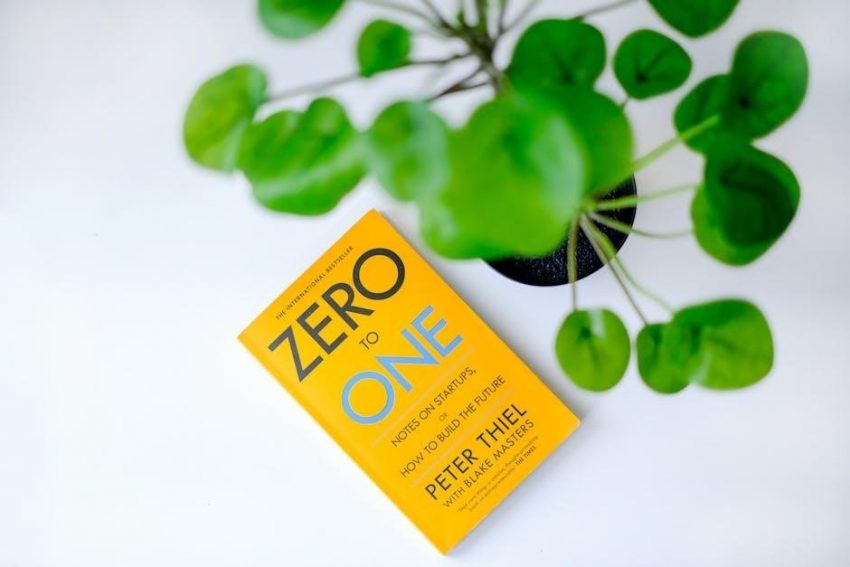Zero to One: Notes on Startups, or How to Build the Future by Peter Thiel is a groundbreaking guide to entrepreneurship, emphasizing innovation and monopoly creation․

Overview of the Book and Its Significance
Zero to One: Notes on Startups, or How to Build the Future is a 2014 book by Peter Thiel, co-written with Blake Masters, offering insights into entrepreneurship and innovation․ Thiel challenges conventional business wisdom, advocating for creating monopolies and inventing new products rather than competing in saturated markets․ The book, based on Thiel’s Stanford lectures, emphasizes the importance of thinking differently to achieve breakthroughs․ It has become a influential guide for founders, encouraging them to focus on uniqueness and long-term vision․ By blending practical advice with philosophical reflections, Zero to One has reshaped modern entrepreneurial thinking, inspiring startups to aim for transformative innovation․
Peter Thiel’s Background and Contributions to Entrepreneurship
Peter Thiel, a visionary entrepreneur and investor, co-founded PayPal and Palantir, revolutionizing online payments and data analytics․ A Stanford graduate, Thiel’s entrepreneurial journey began with these groundbreaking ventures․ His approach to entrepreneurship emphasizes uniqueness and long-term vision, encouraging founders to create monopolies rather than compete․ Thiel’s insights, shared in Zero to One, have significantly influenced modern startup strategies, advocating for innovation over replication․ His venture capital firm, Founders Fund, supports pioneering companies, further solidifying his impact on the entrepreneurial landscape․ Thiel’s work continues to inspire entrepreneurs to think differently and aim for transformative innovation․
Core Concepts of “Zero to One”
Zero to One introduces key ideas like creating monopolies, avoiding competition, and the importance of innovation․ It emphasizes unique value propositions and long-term thinking for startups․
The Idea of “Zero to One” vs․ “One to N”
Zero to One refers to creating something entirely new, moving from nothing to something․ In contrast, One to N involves replicating an existing model․ Thiel argues that true value lies in the former, as it leads to monopolies and innovation․ Zero to One emphasizes uniqueness, while One to N focuses on scaling․ This concept challenges entrepreneurs to think beyond incremental improvements and aim for groundbreaking ideas․ By focusing on Zero to One, startups can create entirely new markets, avoiding competition and building lasting value․ This idea is central to Thiel’s vision for building a successful and future-oriented business․
The Role of Monopolies in Startups
Peter Thiel argues that monopolies are crucial for startups, as they enable companies to dominate a specific market niche․ Unlike competitive markets, monopolies allow businesses to focus on innovation and long-term value creation․ Thiel believes that aiming for monopoly is better than competing in saturated markets, where profits are diluted․ Startups should strive to create unique products or services that cannot be easily replicated, giving them the power to set prices and control their market․ This approach fosters sustainability and scalability, making monopolies a key driver of successful startups․ By avoiding direct competition, companies can allocate resources to innovation, paving the way for future growth and industry leadership․
The Importance of Innovation
Innovation is the backbone of progress, driving startups to create value where none existed before․ Thiel emphasizes that true innovation solves real problems, transforming industries and fostering growth․
Why Startups Should Aim to Create New Things
Startups should aim to create new things because solving unresolved problems unlocks new value for society and establishes a competitive edge․ By addressing unmet needs, startups can pioneer industries, creating monopolies rather than competing in crowded markets; Thiel argues that innovation is about more than incremental improvements; it’s about inventing the future․ Startups that focus on creating new things differentiate themselves and capture undisputed market leadership․ This mindset fosters breakthroughs, driving long-term success and societal progress․ By prioritizing uniqueness and solving real-world challenges, startups can build a future that didn’t exist before, leaving a lasting impact on industries and consumers alike․
The Difference Between Horizontal and Vertical Progress
Horizontal progress involves improving existing technologies or processes, while vertical progress creates entirely new ones․ Horizontal progress is incremental, such as making cars faster or phones sleeker․ Vertical progress, however, invents new industries or solutions, like the internet or artificial intelligence․ Thiel argues that vertical progress is rarer and more impactful, as it solves problems that were previously unsolvable․ Startups aiming for vertical progress create monopolies by pioneering new markets․ This distinction emphasizes the importance of innovation over iteration, urging entrepreneurs to seek breakthroughs rather than marginal improvements․ Vertical progress is the key to building a future that didn’t exist before․

Key Principles for Building Successful Startups
Thiel’s principles emphasize creating monopolies, solving real problems, and fostering innovation; Startups should focus on unique value propositions, avoid competition, and build small, focused teams to achieve long-term success․
The Seven Questions Every Entrepreneur Should Answer
Peter Thiel outlines seven critical questions entrepreneurs must address to build successful startups: Can you create breakthrough technology? Is now the right time? Are you starting with a big share of a small market? Do you have the right team? Do you have a way to achieve monopoly? Are you properly financed? And, is your idea viable in the future? These questions ensure clarity, focus, and long-term viability, helping entrepreneurs avoid common pitfalls and build enduring companies․ By addressing these, founders can create unique value and achieve lasting success in their industries․
The Power of Small, Focused Teams
Peter Thiel stresses the importance of small, focused teams in building successful startups․ He argues that a tight-knit group of talented individuals can achieve far more than a large, fragmented team․ Small teams foster better communication, alignment, and accountability․ They enable rapid decision-making and adaptability, which are critical in the early stages of a startup․ Thiel also emphasizes the value of shared ownership and commitment, as smaller teams are more likely to be deeply invested in the company’s vision․ By avoiding bureaucratic overhead, small teams can innovate faster and execute more effectively, giving them a competitive edge in creating groundbreaking products and services․ This approach is central to Thiel’s philosophy of building the future․

The Role of Secrets in Innovation
Secrets are essential for innovation, as they enable startups to uncover hidden truths and create unique value․ Thiel argues that successful companies often discover something others overlook, leveraging these insights to build monopolies and drive groundbreaking advancements․ By focusing on secrets, entrepreneurs can avoid competition and create products that truly stand out, fostering long-term success and industry transformation․ This approach emphasizes the importance of uniqueness and contrarian thinking in achieving innovation․
Why Secrets Are Essential for Breakthroughs
Secrets are the backbone of innovation, enabling entrepreneurs to uncover hidden truths and create unique value․ Thiel argues that breakthroughs often stem from understanding something others overlook․ By identifying and leveraging secrets, startups can avoid competition and focus on solving unseen problems․ Secrets allow companies to create monopolies by addressing unmet needs, leading to transformative advancements․ This approach fosters long-term success, as truly innovative ideas often stem from contrarian insights․ In Zero to One, Thiel emphasizes that secrets are not just about confidentiality but about uncovering unique truths that drive meaningful progress and reshape industries․
How to Identify and Leverage Secrets in Your Industry
Identifying secrets involves looking for contrarian insights that others overlook․ Thiel suggests asking questions like, “What does everyone believe that might not be true?” By challenging conventional wisdom, entrepreneurs can uncover hidden opportunities․ To leverage these secrets, focus on solving problems others ignore or undervalue․ Small, agile teams are best suited for this, as they can move quickly to address these gaps․ By creating unique value in an underserved market, startups can establish monopolies, ensuring long-term success․ This approach not only drives innovation but also builds a sustainable competitive advantage, as seen in Thiel’s own ventures like PayPal and Palantir․

The Future of Technology and Entrepreneurship
Peter Thiel predicts vast opportunities in emerging fields like AI and biotechnology․ He emphasizes the importance of monopolies and secrets in driving innovation and shaping the future․
Predictions and Insights from Peter Thiel
Peter Thiel predicts that the future of technology will be shaped by companies that create monopolies in untouched markets․ He believes that true innovation comes from solving problems that others overlook, rather than competing in saturated industries․ Thiel also highlights the potential of emerging fields like AI and biotechnology to transform society․ He warns against globalization and technological stagnation, emphasizing the need for startups to focus on vertical progress—creating new technologies rather than copying existing ones․ Thiel’s insights stress the importance of small, mission-driven teams and the power of secrets in driving breakthroughs․ His vision calls for entrepreneurs to rethink the future and build it from scratch․
Opportunities in Emerging Fields Like AI and Biotechnology
AI and biotechnology are poised to revolutionize industries, offering unprecedented opportunities for startups․ Peter Thiel highlights these fields as fertile ground for innovation, where companies can create monopolies by solving unique problems; AI can transform sectors like healthcare and finance, while biotechnology holds the key to medical breakthroughs and longevity solutions․ Thiel emphasizes that these industries require bold thinking and long-term investment․ Entrepreneurs who focus on vertical progress—creating entirely new technologies—will drive the next wave of innovation․ By leveraging secrets and concentrating on underserved markets, startups in these fields can achieve exponential growth and shape the future․ Thiel’s insights underscore the potential for these industries to redefine human progress․
“Zero to One” by Peter Thiel offers groundbreaking insights into entrepreneurship, innovation, and building the future․ It challenges readers to think differently, emphasizing the power of monopolies and secrets in creating transformative companies․ Thiel’s ideas inspire entrepreneurs to aim for uniqueness and long-term value, providing a roadmap for shaping tomorrow’s world․ This book remains a vital resource for anyone seeking to redefine industries and create lasting impact․ Its principles continue to influence startups and innovators globally, ensuring its enduring relevance in the ever-evolving business landscape․
“Zero to One” by Peter Thiel distills essential lessons for entrepreneurs, emphasizing the importance of creating unique value and avoiding competition․ Thiel argues that true progress comes from solving unaddressed problems, not copying others․ He stresses the value of monopolies, small focused teams, and long-term thinking․ Entrepreneurs must answer seven critical questions: Can you create breakthrough technology? Is there a large market? Can you scale? Do you have a strong team? Do you have a unique idea? Can you achieve monopoly? Can you maintain it long-term? Thiel also highlights the power of secrets in driving innovation․ The book challenges conventional wisdom, offering a roadmap for building companies that reshape industries and create the future․ Its insights remain indispensable for aspiring founders and innovators․
The Lasting Impact of “Zero to One” on Entrepreneurship
Peter Thiel’s “Zero to One” has profoundly influenced modern entrepreneurship, reshaping how founders approach innovation and competition․ By challenging conventional wisdom, the book has inspired entrepreneurs to focus on creating unique value rather than replicating existing models․ Its emphasis on monopolies, secrets, and long-term thinking has shifted the mindset of startups worldwide․ The book has become a foundational text in Silicon Valley and beyond, sparking debates about the future of technology and business․ Its principles continue to guide entrepreneurs, fostering a culture of bold innovation and ambitious thinking․ “Zero to One” remains a timeless resource, offering insights that transcend industries and generations․
